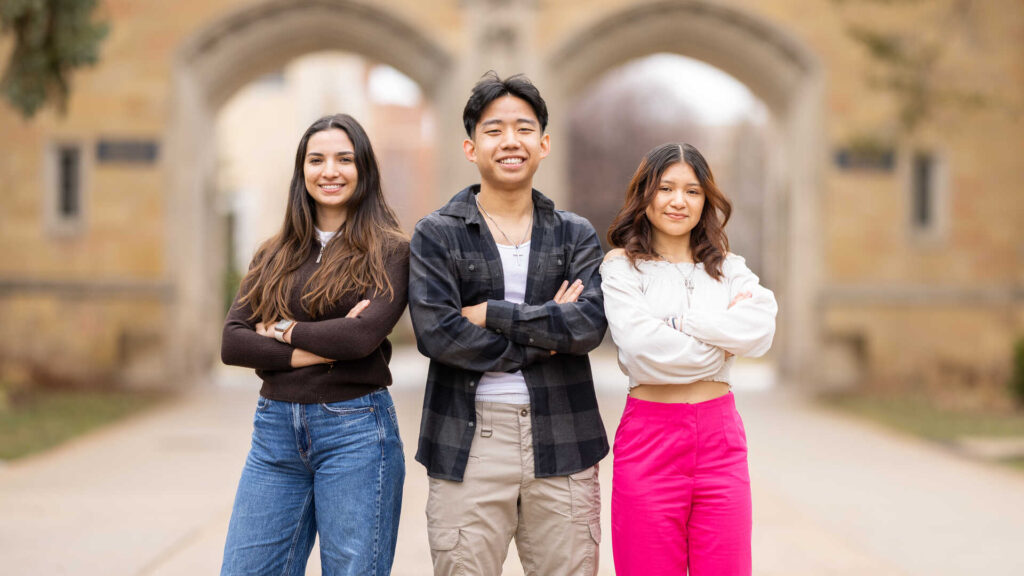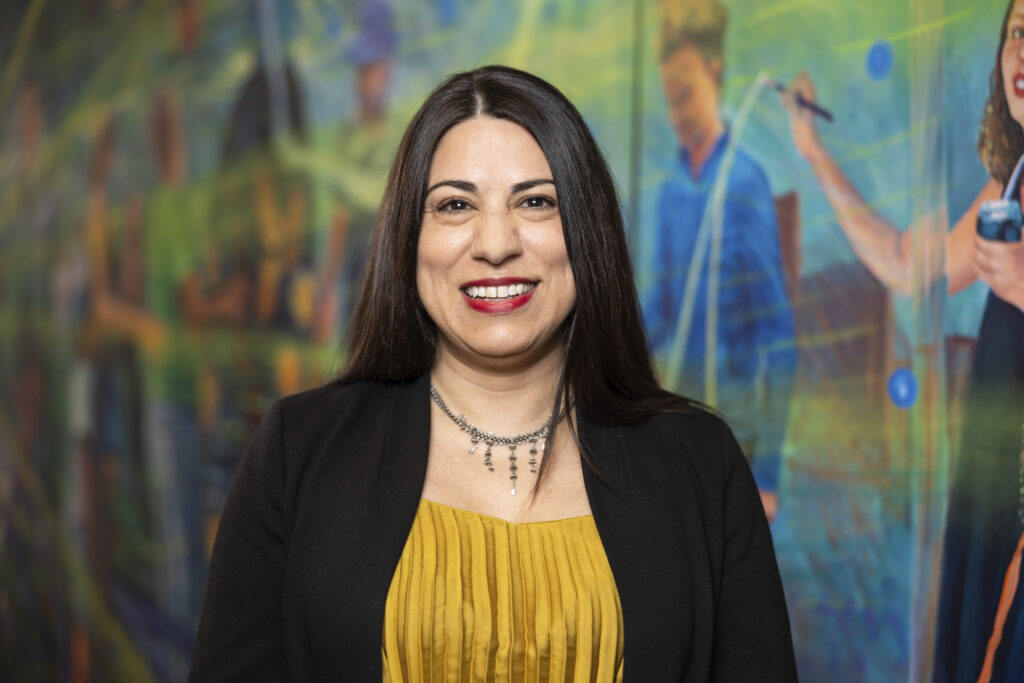Editor’s note: Faculty and staff members of the St. Thomas Anti-Racism Coalition have sent a letter to President Julie Sullivan and the Newsroom asking for further dialogue, collaboration and projects that will be positive forces in St. Thomas becoming a more inclusive and racially just university. Sullivan responds in a separate letter.
Dear University of St. Thomas community,
As staff and faculty at the University of St. Thomas, we write this open letter in solidarity with our students of color who have courageously asserted their vision for an equitable and inclusive education that affirms their dignity as part of our human family. In concert with the growing student activist movement across the nation, St. Thomas students of color have been in dialogue with the administration about their experiences of inequity on campus, and have clearly identified a list of recommendations that begin to address these matters.
These recommendations are the most recent in St. Thomas’ history of anti-racism activism, some of which has achieved important changes, though not yet resulting in an environment where all students thrive. We have an opportunity now – at a time when our strategic plan for 2020 prioritizes diversity and an inclusive culture, and when the Embracing Our Differences as One Human Family Task Force has put forth their recommendations – to deeply hear what our students are saying is necessary for them to succeed at St. Thomas. It is incumbent on us to enact changes at every level of the university if we are to impact their experiences.
In reviewing the students’ recommendations and hearing directly from many of them, it is clear that they have taken our mission to heart. Indeed, they are prompting us to deepen the ways that we work to promote the development of “morally responsible leaders who think critically, act wisely, and work skillfully to advance the common good.” For them, the mission takes on added resonance when they must learn in classrooms where they have had to educate their peers on matters of race with little support from peers or faculty; where they have felt alienated when they have been the only students of color in their classes; where they have had to endure and speak against racist rhetoric. As we see it, our students’ experiences reflect visible diversity that conceals an unfortunate inhospitality that arises too frequently. Rather than fully enriching our educational community with their gifts of intellect, creativity, and ways of being, our students have expressed feeling like unwelcome guests, rather than claiming full membership in the St. Thomas community that they have earned.
We respectfully call on our administration – whose leadership has offered a vision of a 21st century St. Thomas education that privileges diversity and inclusion – to begin immediate implementation of near-term projects that will have an impact on our students’ educational endeavors, and a long-term strategy to become an intentionally anti-oppressive and racially just community.
These recommendations have not been created in isolation; rather, they reflect just how connected our human family is in continuing to face the intergenerational sequelae brought on by the history of slavery and indigenous land dispossession and the hidden ideologies we have inherited. Across the nation, students are calling upon us to increase faculty and staff diversity, meaningfully embed topics of diversity within the academic experience, and create more spaces for students of color to gather and support each other.
In addition to recommending long-term strategies that would transform the university into a more equitable and inclusive place, our students have presented three immediate goals. They would like (a) a safe space to meet in the Anderson Student Center; (b) ongoing diversity training for faculty, staff (including upper administration), and students, along with measurable goals to make sure that the training is effective; and (c) proactive educational efforts across campus combating racial injustice (some of these areas of action include curricular matters, residence life, and campus climate).
While we recognize the importance of each of the recommendations that our students have put forth, we wish to highlight the issue of space in what we hope will be one step among many toward long-term institutional change because it would have an immediate beneficial effect for our students at St. Thomas. We cite the success of other campuses that have multicultural spaces dedicated to students, such as Vassar’s ALANA Center and Stanford’s ethnically dedicated residence halls. Edward Pittman, writing for Black Issues in Higher Education in 1994, stated: “By necessity, students of color must be multidimensional in order to survive academically and socially, and the cultural center often complements this developmental process.” We also note that space can have a deeply cultural significance. For instance, space is as culturally organizing for American Indians as time is for Euro-Americans.
We suggest that other dedicated spaces for students on campus, such as the Living and Learning Communities for sustainability, Aquinas Scholars, and wellness, serve as models for the kind of shared interests, educational opportunities, and social support our students of color can also directly benefit from, and that additionally can have an impact on the experience of all St. Thomas students.
As we stand with our students who are urging us to work with them to close the gap between our vision for our human family and the lived realities on campus, we are particularly encouraged to see the various endeavors that the strategic task force on Embracing Our Differences as One Human Family has undertaken to address the campus-wide racial inequity issue. We believe a more active, positive, and transparent approach is an essential step to ensure its success. We also share the concern of the strategic task force about assessing the effectiveness of these efforts, both short- and long-term. We encourage the task force to continue to work closely with our student representatives on the recommendations, including creating and assessing training workshops for our community.
In closing, we reflect on President Sullivan’s view of our university’s role in preparing ourselves for the contemporary needs in the world. Let us be the bridges to bring our community together to realize our collective capacity to advance the common good.
Sincerely,
University of St. Thomas Anti-Racism Coalition
Members who requested their names be listed individually are:
Dr. Young-Ok An
Ryan Blake
Teron Buford
Dr. Susan Callaway
Dr. Consuelo Cavalieri
Dr. Kanishka Chowdhury
Sarah Churchill
Patricia Conde-Brooks
Dr. Kisha Delain
Dr. Alexis Easley
Dr. Paola Ehrmantraut
Dr. Amy Finnegan
Dr. Bryana French
Kelly Garrity
Dr. Dina Gavrilos
Jessica Gjerde
Dr. Mari Ann Graham
Dr. Xiaowen Guan
Dr. Rama Hart
Joe Herrera
Dr. Olga Herrera
Dr .Angela High-Pippert
Dr. Katharine Hill
Sharon Howell
Dr. Emily James
Pat Jensen
Dr. Patti Kameya
Dr. Mike Klein
Dr. Anne Klejment
Dr. Kelli Larson
Dr. Todd Lawrence
Dr. Nakeisha Lewis
Dr. Raymond MacKenzie
Dr. Amy Mickelson
Dr. Amy Muse
Dr. Jack Nelson-Pallmeyer
Dr. Ande Nesmith
Dr. Lucia Pawlowski
Tonia Peterson
Cris Phillips
Ea Porter
Brad Pulles
Dr. Salina Renninger
Dr. Sonia Rey-Montejo
Dr. Starr Sage
Dr. Janine Sanders
Dr. Christopher Santiago
Dr. Andrew Scheiber
Dr. Heather Shirey
Dr. Buffy Smith
Marria Thompson
Dr. Kim Vrudny
Dr. Sheneeta White
Dr. Liz Wilkinson
Dr. Laura Zebuhr
Dr. Kari Zimmerman






